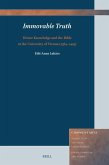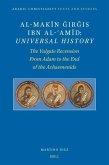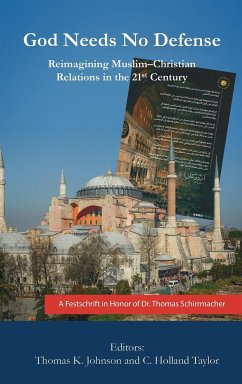The history of the Islamic interaction with the Scriptures of Judaism and Christianity has been studied extensively in academia. The prevailing view is that Muslims had hardly any religious appreciation to the Bible and when used by Muslims it was mainly in apologetic or polemical settings. The document presented here squarely contradicts such a view. The treatise argues for the permissiblity of using the Bible by Muslims for religious purposes. Al-BiqAEA, the author of this treatise, wrote a huge QurE3/4An commentary that used the Hebrew Bible and the Gospels to interpret parts of the QurE3/4An. Al-SakhAwA, a bitter enemy, opposed such a practice. The document preserves for us a fundamental argument inside Islam about the value of the Scriptures of other religions.
Bitte wählen Sie Ihr Anliegen aus.
Rechnungen
Retourenschein anfordern
Bestellstatus
Storno




